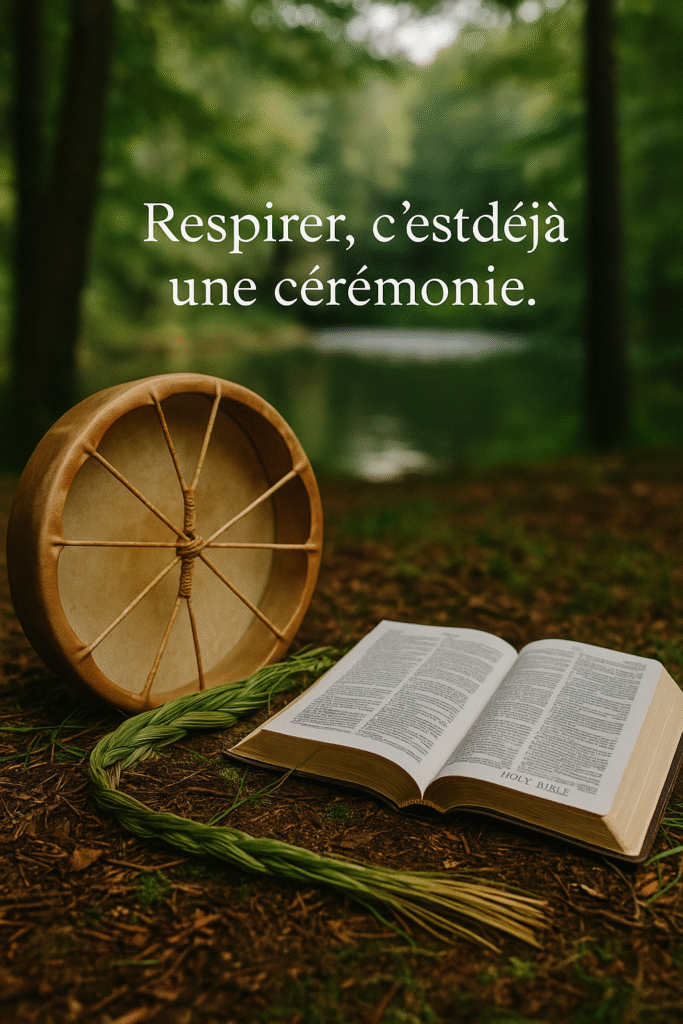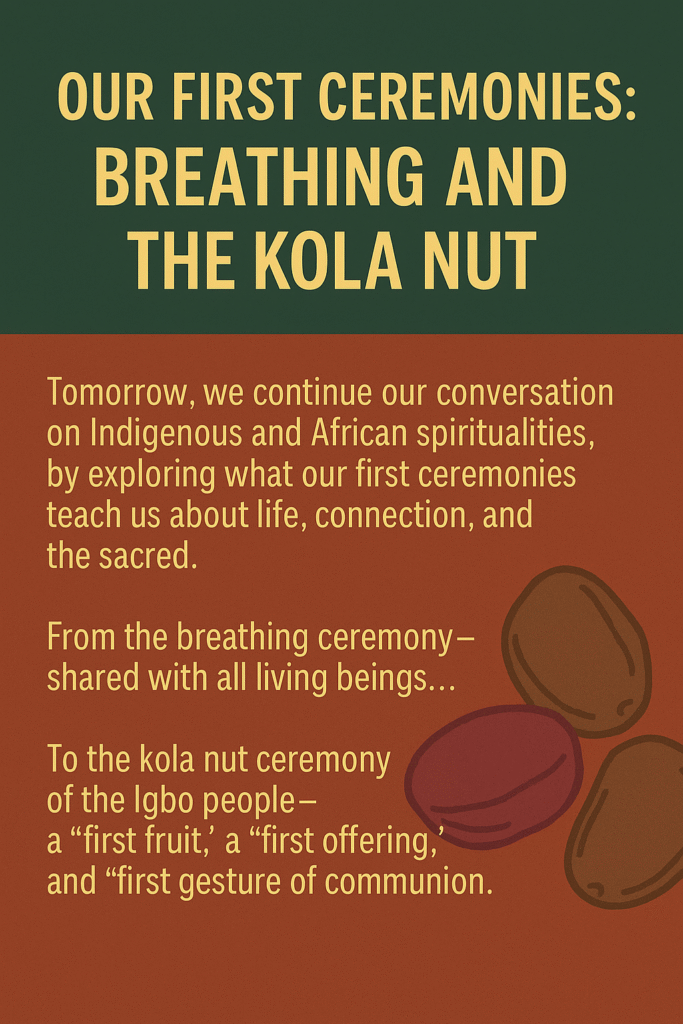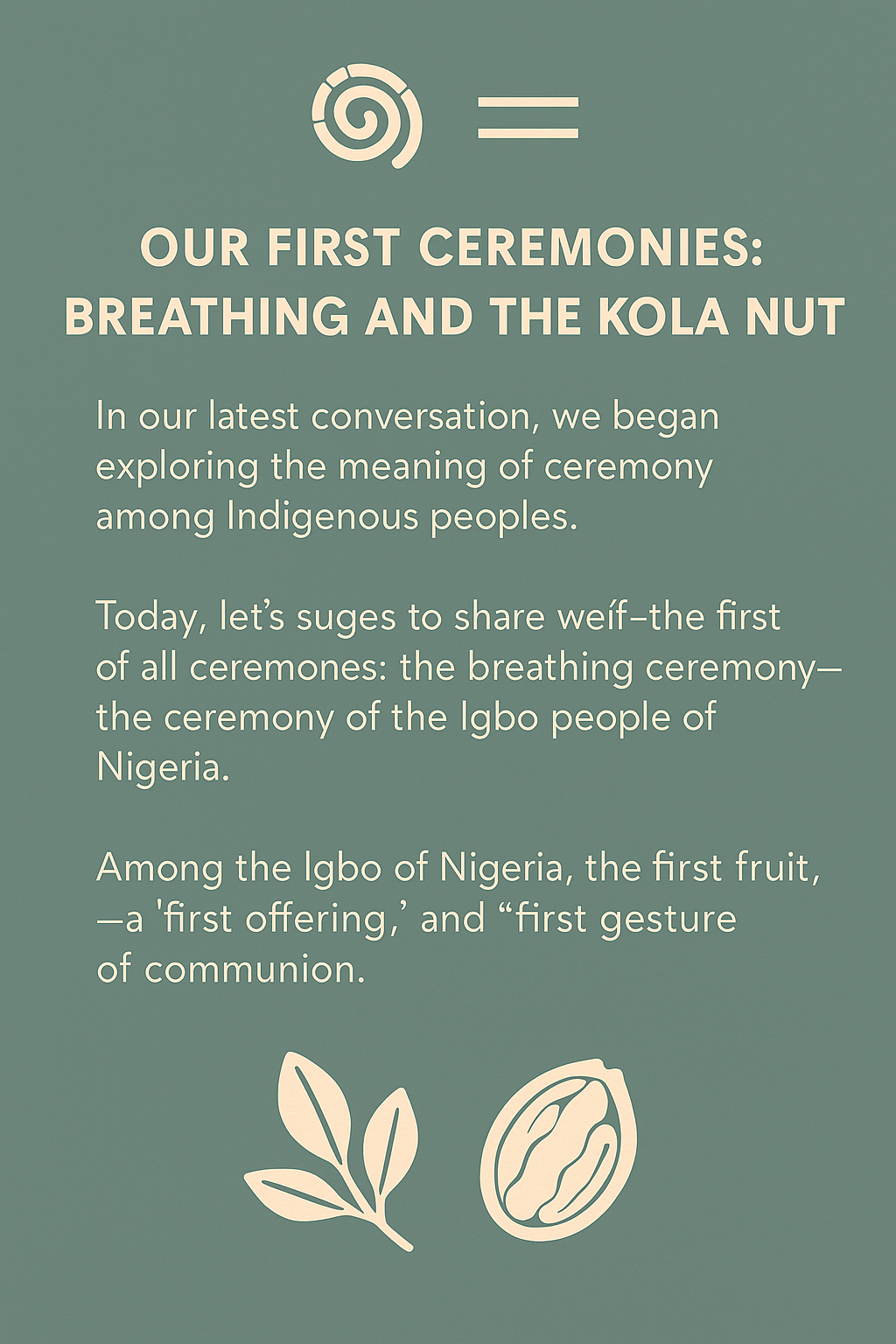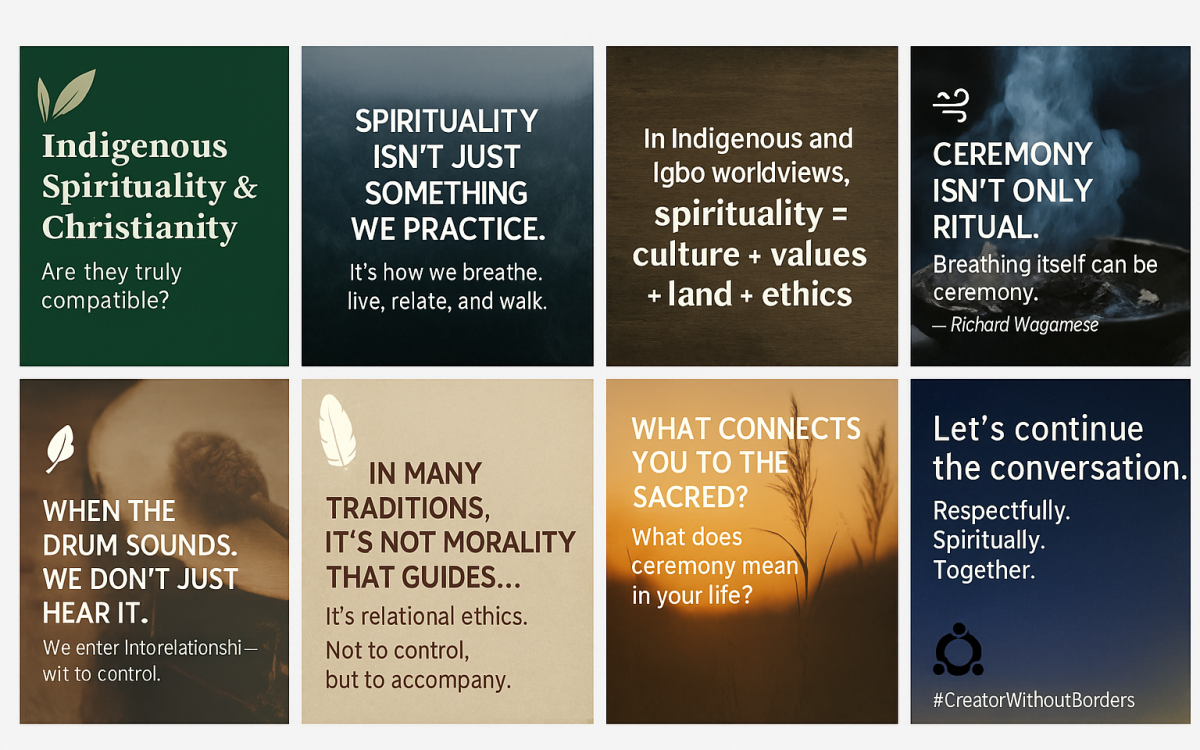In our journey exploring First Indigenous Ceremonies, we begin with the Anishinaabe breathing ceremony, beautifully described by Ojibwe storyteller Richard Wagamese.
Breath is more than biological—it is spiritual. This sacred ceremony connects us to the Creator, to all of creation, and the sacred rhythm of the universe. It is the first ceremony because breath is the first gift we receive. It reminds us of our time in the womb, hearing the steady breath of our mother and the beat of the teueikan—the sacred drum.
“Simply by living as a tribal person, as someone connected to all other beings and things on the planet, our life itself becomes a ceremony.” — Richard Wagamese
In this light, our very being becomes a living ceremony, echoing the Seven Grandfather Teachings of the Anishinaabe.
🥥 The Igbo Kola Nut Ritual: A Sacred First Ceremony from Africa
Another example of First Indigenous Ceremonies comes from my people—the Igbo of Nigeria—who practice the sacred kola nut ritual.
Among the Igbo, the kola nut (oji) is not just a fruit. It is the first tree of the Earth, gifted by the Creator. Offering kola is our first sacred gesture of communion, peace, and welcome. No matter how generous the meal or warm the greeting, without kola, true hospitality has not been given.
Even to a passing stranger, kola must be offered. If it is unavailable, we offer sacred chalk, water, or alligator pepper. If nothing is available, we humbly ask forgiveness:
“Oji ejula ulo” — The kola nut does not stay in the house.
“Ka m jide gi ugwọ oji” — Let me owe you a kola nut.
📖 The Origin Story Behind the First Kola Nut Ceremony
The Igbo kola nut ceremony is rooted in a profound origin story:
Once, a spirit took a human woman, Ugo, as his bride. As dowry, he offered:
- Sacred chalk — for blessing and welcome
- Coconut — for nourishment and healing
- Kola nut — as a lasting sign of covenant and trust
Since then, offering the kola nut has become a ritual of peace-making, honor, and spiritual bonding. To refuse it is to refuse a relationship.
When we share kola, we proclaim:
“Onye wetere oji, wetere ndu” – He who brings kola brings life.
“Ndu nwoke, ndu nwanyi” – The life of a man is the life of a woman.
“Nwoke biri, nwaanyị biri” – May the man live, may the woman live.
“Mmiri atana, azu anwuna” – May the waters not dry, may the fish not die.
✨ Why These First Indigenous Ceremonies Still Matter
Both the Anishinaabe breathing ceremony and the Igbo kola nut ritual are First Indigenous Ceremonies that carry deep theological meaning. They remind us that:
- Ceremony is a way of life, not a one-time act.
- Rituals reflect values: relationship, hospitality, interconnection, and sacred memory.
- Sacred traditions are not outdated relics but vibrant, living expressions of spiritual identity.
🌍 A Call to Remember Your Own First Ceremony
So let me ask you:
👉 What is the first ceremony of your culture?
👉 What gestures, rituals, or prayers remind you that you are part of creation, connected to others, and called to something sacred?
Let us continue this conversation — beyond borders, through mutual respect, curiosity, and cultural listening.
Our first ceremonies tell us who we are — and even more, who we are to each other.
🔁 Share this post.
💬 Add your voice.
🌱 Keep the conversation going.



-
Facebook
-
Twitter
-
Linkedin
-
Whatsapp






